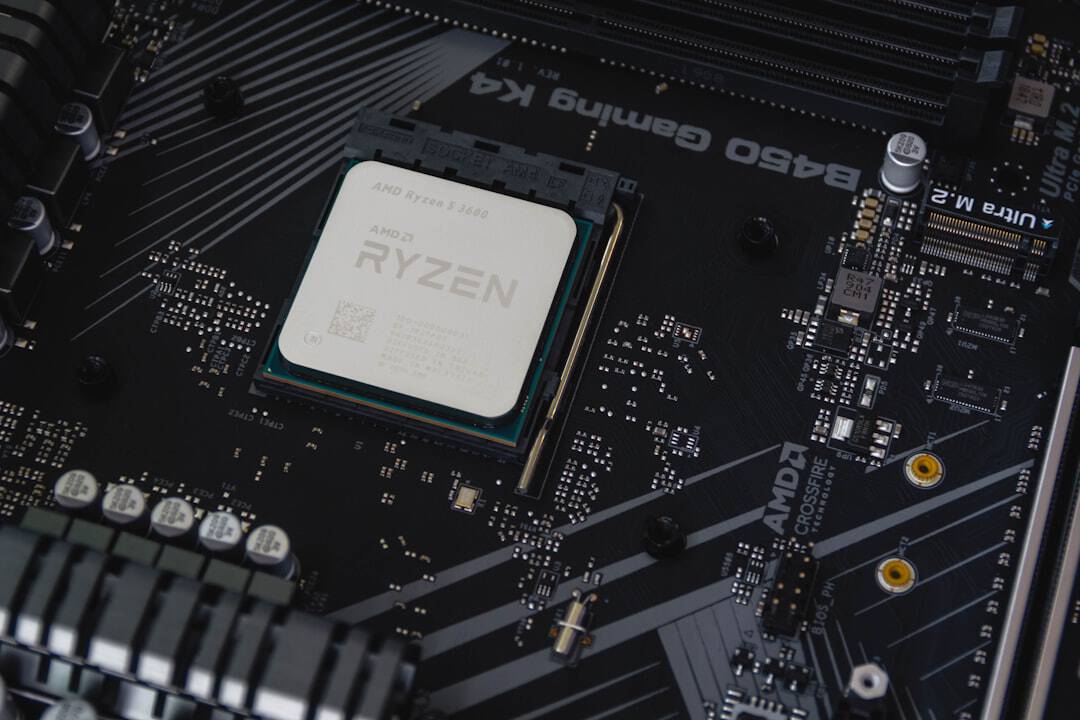The concept of the metaverse has gained significant attention in recent years, with many experts considering it the next major technological advancement. The metaverse is defined as a collective virtual shared space, created by the convergence of virtually enhanced physical reality and physically persistent virtual reality. In essence, it is a fully immersive digital world where people can interact with each other and digital objects in real-time.
While popularized by science fiction, recent technological advancements have made the metaverse a tangible reality. The implications of the metaverse are extensive and far-reaching. It has the potential to revolutionize work, socialization, and entertainment.
In the metaverse, individuals can attend virtual meetings, explore digital landscapes, and participate in virtual events and experiences. This technology has significant implications for various industries, including entertainment, education, and business. The metaverse may create new opportunities for collaboration, innovation, and novel forms of entertainment and social interaction.
However, it also raises important questions about privacy, security, and ethical considerations that need to be addressed as the technology continues to develop. The emergence of the metaverse represents a fundamental shift in how we interact with digital content and each other. As this technology evolves, it will be crucial to consider its implications and potential impact on society as a whole.
Key Takeaways
- The metaverse is a virtual shared space created by the convergence of virtually enhanced physical reality and physically persistent virtual reality.
- Virtual reality and augmented reality are set to revolutionize immersive experiences, from gaming and entertainment to education and training.
- NFTs have the potential to transform the digital economy by providing a way to authenticate and monetize digital content.
- Blockchain technology is revolutionizing the way we interact with digital content by providing transparency, security, and decentralization.
- Artificial intelligence and machine learning are shaping the future of meta technologies by enabling personalized and intelligent interactions within the metaverse.
Virtual Reality and Augmented Reality: The Future of Immersive Experiences
Immersive Experiences Beyond Gaming
VR and AR have already made significant strides in gaming and entertainment, but their potential goes far beyond that. In the context of the metaverse, VR and AR can be used to create fully immersive digital environments where people can interact with each other and digital objects in real-time. This has significant implications for social interaction, entertainment, and even work.
New Opportunities for Interaction and Collaboration
For example, VR can be used to create virtual meeting spaces where people from around the world can come together in a shared digital environment. Similarly, AR can be used to overlay digital information onto the physical world, creating new opportunities for education, navigation, and entertainment. The future of immersive experiences lies in the continued development of VR and AR technologies.
Transforming the Way We Interact
As these technologies become more advanced and accessible, they have the potential to transform the way we interact with digital content and each other. The integration of VR and AR into the metaverse will open up new possibilities for collaboration, creativity, and social interaction.
NFTs and the Digital Economy: Exploring the Potential of Non-Fungible Tokens

Non-fungible tokens (NFTs) have been making headlines in recent years as a new way to buy, sell, and trade digital assets. NFTs are unique digital tokens that represent ownership of a specific item or piece of content, such as artwork, music, or videos. Unlike cryptocurrencies like Bitcoin or Ethereum, which are fungible and can be exchanged on a one-to-one basis, NFTs are non-fungible and cannot be exchanged on a like-for-like basis.
This uniqueness gives NFTs their value and has led to a surge in interest in this new form of digital asset. The potential of NFTs in the digital economy is vast. They have the potential to revolutionize the way we buy and sell digital content, as well as how we think about ownership and authenticity in the digital age.
NFTs can be used to create new revenue streams for artists and creators, as well as new opportunities for collectors and investors. They also have the potential to create new forms of digital expression and creativity, as artists and creators explore new ways to leverage this technology. As NFTs continue to gain traction in the digital economy, it will be important to consider their implications for copyright, ownership, and intellectual property rights.
The rise of NFTs represents a fundamental shift in the way we think about digital assets and ownership, and it will be important to navigate these changes thoughtfully and ethically.
Blockchain Technology: Revolutionizing the Way We Interact with Digital Content
| Metrics | Data |
|---|---|
| Blockchain Transactions per Second | 3,000 |
| Blockchain Market Size | 6.7 billion |
| Blockchain Technology Adoption Rate | 55% |
| Blockchain Smart Contracts Usage | 45% |
Blockchain technology has been at the forefront of many technological advancements in recent years, and its potential impact on the metaverse is no exception. Blockchain is a decentralized digital ledger that records transactions across multiple computers in such a way that the recorded transactions cannot be altered retroactively. This technology has significant implications for the way we interact with digital content, particularly in terms of security, transparency, and ownership.
In the context of the metaverse, blockchain technology can be used to create secure and transparent systems for buying, selling, and trading digital assets. This has significant implications for creators, artists, and consumers alike. For creators, blockchain technology can provide a secure way to authenticate their work and ensure that they receive fair compensation for their creations.
For consumers, blockchain technology can provide a transparent way to verify the authenticity of digital assets and ensure that they are purchasing legitimate items. The potential impact of blockchain technology on the metaverse is vast. As this technology continues to evolve, it has the potential to create new opportunities for creators and consumers alike.
It also has the potential to create new forms of digital expression and creativity, as artists and creators explore new ways to leverage this technology.
Artificial Intelligence and Machine Learning: Shaping the Future of Meta Technologies
Artificial intelligence (AI) and machine learning (ML) are two technologies that are poised to play a significant role in shaping the future of meta technologies. AI refers to the simulation of human intelligence processes by machines, while ML refers to the use of algorithms that allow computers to learn from data. Both technologies have already made significant strides in various industries, but their potential impact on meta technologies is particularly noteworthy.
In the context of the metaverse, AI and ML can be used to create intelligent systems that can understand, interpret, and respond to human behavior in real-time. This has significant implications for social interaction, entertainment, and even work. For example, AI can be used to create virtual assistants that can help users navigate virtual environments or provide real-time translation services.
Similarly, ML can be used to create personalized experiences based on user behavior and preferences. The future of meta technologies lies in the continued development of AI and ML technologies. As these technologies become more advanced and accessible, they have the potential to transform the way we interact with digital content and each other.
The integration of AI and ML into meta technologies will open up new possibilities for collaboration, creativity, and social interaction.
The Intersection of Gaming and Metaverse: Redefining Entertainment and Social Interaction

Immersive Digital Environments
In the context of the metaverse, gaming can be used to create fully immersive digital environments where people can interact with each other and digital objects in real-time. This has significant implications for social interaction, entertainment, and even work. For example, gaming can be used to create virtual worlds where people can explore new landscapes, participate in virtual events, or even attend virtual concerts.
New Opportunities for Collaboration and Innovation
The potential impact of gaming on the metaverse is vast. As this technology continues to evolve, it has the potential to create new opportunities for collaboration and innovation in entertainment and social interaction.
New Forms of Digital Expression and Creativity
It also has the potential to create new forms of digital expression and creativity as game developers explore new ways to leverage this technology.
Ethical and Privacy Considerations in the Meta of the Future
As we continue to explore the potential of meta technologies such as the metaverse, it is important to consider ethical and privacy considerations that come with these advancements. The rise of meta technologies raises important questions about privacy, security, ownership rights, and ethical considerations that need to be addressed as this technology continues to develop. One of the key ethical considerations in the meta of the future is privacy.
As we spend more time in virtual environments interacting with others through avatars or virtual representations of ourselves, it becomes crucial to ensure that our personal data is protected from misuse or unauthorized access. Additionally, there is a need to establish clear guidelines for consent when it comes to sharing personal information within virtual spaces. Another important consideration is ownership rights in virtual environments.
As more digital assets are created within the metaverse, it becomes essential to establish clear rules regarding ownership rights for these assets. This includes everything from virtual real estate to digital artwork or items purchased within virtual worlds. Furthermore, there is a need for transparency when it comes to how data is collected and used within virtual environments.
Users should have a clear understanding of how their data is being utilized by platform providers or other users within these spaces. In conclusion, as we continue to explore the potential of meta technologies such as the metaverse, it is important to consider ethical and privacy considerations that come with these advancements. It will be crucial for developers, policymakers, and users alike to work together to establish clear guidelines that protect privacy rights while fostering innovation within these virtual spaces.
For more insights on the challenges and opportunities of the metaverse from a business and economic perspective, check out the article “Challenges and Opportunities: Business and Economic Perspectives” on Metaversum’s website here. This article delves into the potential impact of the metaverse on various industries and the opportunities it presents for businesses.
FAQs
What is Horizon Meta?
Horizon Meta refers to the concept of looking beyond the current horizon or scope of a situation to consider the broader implications and potential future developments.
How is Horizon Meta used in decision-making?
Horizon Meta is used in decision-making to encourage individuals and organizations to consider the long-term consequences and impacts of their choices, rather than focusing solely on short-term gains or immediate outcomes.
What are the benefits of applying Horizon Meta thinking?
Applying Horizon Meta thinking can help individuals and organizations anticipate and prepare for future challenges, identify new opportunities, and make more informed and strategic decisions.
How does Horizon Meta relate to strategic planning?
Horizon Meta is closely related to strategic planning as it involves considering the long-term vision and goals of an organization, as well as the potential external factors and trends that may impact its future success.
Can Horizon Meta be applied to personal development?
Yes, Horizon Meta can be applied to personal development by encouraging individuals to think beyond their current circumstances and consider their long-term aspirations, goals, and potential paths for growth and self-improvement.











Leave a Reply